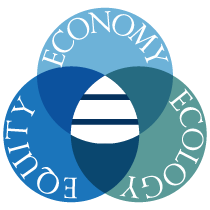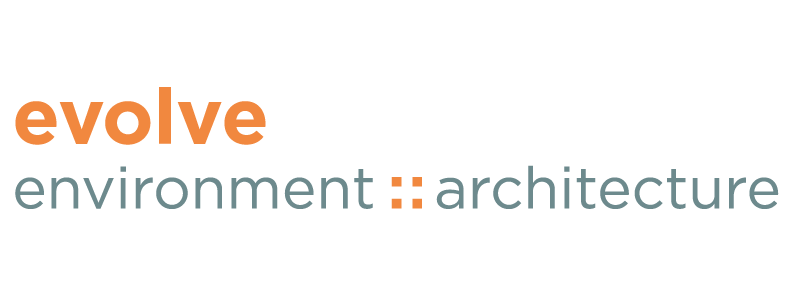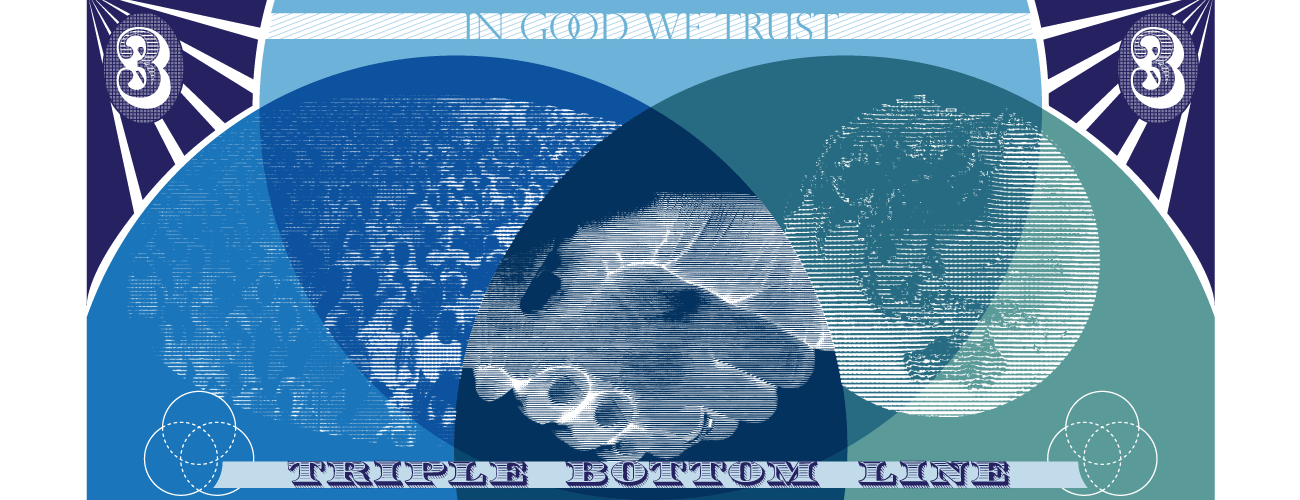Triple Bottom Line Sustainable Business
The importance of business in our lives is hard to overstate. Every aspect of our lives is touched by organizations that make products or services with which we can choose to engage. The smart phones, movies, restaurants, furniture, search engines and cars that we love are brought to us by companies actively participating in the capitalistic enterprise, in which the primary motive in a corporate charter is the creation of wealth—making money doing what the business is created to do. Conventionally, the manner in which a company is deemed successful is its profitability. If profitable, the company can continue; if not, it will have to evolve. This is the bottom line of business.
 A sustainable business has three bottom lines. In addition to profitability, we look at ecological well-being and social equity. While measures of success for the first bottom line are plentiful, the metrics of success for ecology and equity are underdeveloped. The Gross Domestic Product measures the amount of money that changes hands in our country, and is a reliable meter of economic activity and growth. But our overreliance on GDP as a metric is a concern, as this measure, agnostic to all but the flow of money, also rates terrorist attacks, pollution, burglaries, car accidents, illness and divorce as positive events simply because they increase financial volume.
A sustainable business has three bottom lines. In addition to profitability, we look at ecological well-being and social equity. While measures of success for the first bottom line are plentiful, the metrics of success for ecology and equity are underdeveloped. The Gross Domestic Product measures the amount of money that changes hands in our country, and is a reliable meter of economic activity and growth. But our overreliance on GDP as a metric is a concern, as this measure, agnostic to all but the flow of money, also rates terrorist attacks, pollution, burglaries, car accidents, illness and divorce as positive events simply because they increase financial volume.
The measure of well-being should not be of finance, but of value. At first glance the attributes of ecology and equity are ill equipped to vie for parity with finance, and certainly can’t be measured the same way or even in the same scope. Capitalistic success is easily measurable, with hourly stock trends and daily interest rates and quarterly earnings reports, but has conditioned us to short-term thinking. The downside is too great for companies to sacrifice for long-term gain or for politicians to look beyond an election cycle.
The value of ecology and equity each requires a longer-term perspective in order to be revealed. Reclaimed strip-mined land will take decades to be seeded into a forest that contributes biodiversity. An at-risk child who can become safe, nourished and confident will take decades to develop into a productive inventor. But the metrics for success are difficult to gauge, much less agree upon.
Business can be the solution here again. New ways of affirming triple bottom line performance, as well as values, are emerging. Locally, Sustainable Pittsburgh’s Green Workplace Challenge provides a comprehensive way to score a company’s triple bottom line. Likewise, B Lab certifies companies globally as Benefit Corporations, requiring actual corporate charter language to favor all of a company’s stakeholders, rather than simply their shareholders. Both of these avenues require an ongoing commitment far beyond the proverbial business as usual.
evolveEA’s recent certification as a B Corp was an informative process. B Lab’s Impact Assessment framework helped us measure the company’s triple bottom line performance, providing metrics in four categories tailored to our size and business type: Governance, Workers, Community, and Environment. With nearly 1,000 certified B Corporations in over thirty countries, a new triple bottom line economy is emerging that has immense potential for positive change and is already well on its way to its stated goal: to redefine success in business.


